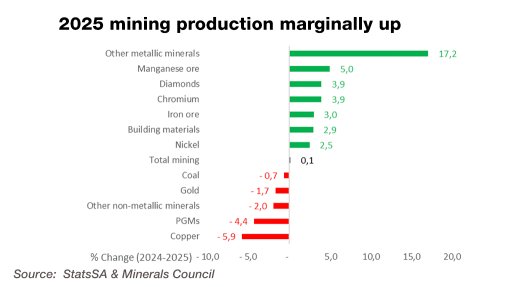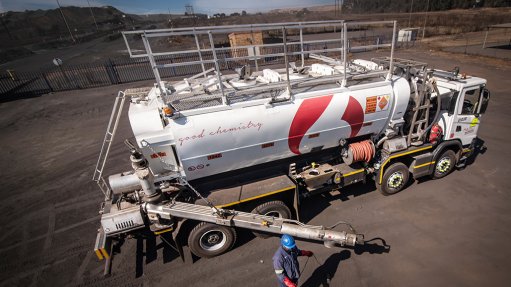Workplace-based learning programmes to address skills shortages



DEON OBERHOLZER Apprentice programmes provide good entry-level education, as well as crucial on-the-job training and experience
ADDRESSING SHORTAGES The workplace-based learning programmes were designed to address the shortage of qualified skills in the plastics manufacturing industry
Business development service ProudAfrique Human Capital has partnered with the University of Johannesburg’s training hub, Resolution Circle, to provide focused workplace-based learning programmes for the plastics manufacturing, computer numerical control (CNC) and injection-moulding industries.
These programmes were introduced last year and will be available for businesses this year as well, says ProudAfrique Human Capital director Deon Oberholzer.
“The workplace-based learning programmes were designed to address the shortage of qualified skills in the plastics manufacturing industry and are accredited with Manufacturing, Engineering and Related Services Sector Education and Training Authority, or Merseta. On successful completion of each programme, a certificate of competence will be issued.”
There are several programmes available, ranging from two to eight months, and each programme typically consists of a theory component (35%) as well as practical and on-the-job training (65%).
Most of the theory section for this plastics manufacturing/CNC qualification is also delivered as a form of on-the-job training, adds Oberholzer.
Further, these programmes are categorised as Category B skills programmes in the learning matrix of the amended black economic-empowerment (BEE) codes.
This category has a mixed-mode delivery of institutional instruction and supervised learning. The learning achieved at the end of training must be a combination of theoretical knowledge and workplace experience, with set requirements that result in a certificate being issued by an accredited institution of learning.
One of the main benefits of opting for programmes that qualify under Category B is that employee salaries spend under the programme is included in the recognised skills expenditure, says Oberholzer. Companies can also apply for services sector education and training authority (Seta) funding.
The programmes are also designed to maximise BEE recognition and the benefit that companies get to improve their BEE scorecards. The inclusion of salaries and potential Seta funding reduces the direct cost and as Category B programmes, participants are also included in the headcount targets of the skills development element of empowerment legislation.
Moreover, Oberholzer highlights that, owing to the shortage of qualified skills in the plastics manufacturing industry, companies are advised to play a role in equipping people with the relevant training and practical skills.
“Apprentice programmes provide good entry-level education, as well as crucial on-the-job training and experience; for companies, workplace-based learnership programmes are an effective way to build the skills and competencies they need to remain competitive as a business.”
ProudAfrique Human Capital expects companies to move towards adapted business strategies that are not only about survival but also expansion and growing their businesses, which includes learnerships and workplace-based learning programmes.
Article Enquiry
Email Article
Save Article
Feedback
To advertise email advertising@creamermedia.co.za or click here
Announcements
What's On
Subscribe to improve your user experience...
Option 1 (equivalent of R125 a month):
Receive a weekly copy of Creamer Media's Engineering News & Mining Weekly magazine
(print copy for those in South Africa and e-magazine for those outside of South Africa)
Receive daily email newsletters
Access to full search results
Access archive of magazine back copies
Access to Projects in Progress
Access to ONE Research Report of your choice in PDF format
Option 2 (equivalent of R375 a month):
All benefits from Option 1
PLUS
Access to Creamer Media's Research Channel Africa for ALL Research Reports, in PDF format, on various industrial and mining sectors
including Electricity; Water; Energy Transition; Hydrogen; Roads, Rail and Ports; Coal; Gold; Platinum; Battery Metals; etc.
Already a subscriber?
Forgotten your password?
Receive weekly copy of Creamer Media's Engineering News & Mining Weekly magazine (print copy for those in South Africa and e-magazine for those outside of South Africa)
➕
Recieve daily email newsletters
➕
Access to full search results
➕
Access archive of magazine back copies
➕
Access to Projects in Progress
➕
Access to ONE Research Report of your choice in PDF format
RESEARCH CHANNEL AFRICA
R4500 (equivalent of R375 a month)
SUBSCRIBEAll benefits from Option 1
➕
Access to Creamer Media's Research Channel Africa for ALL Research Reports on various industrial and mining sectors, in PDF format, including on:
Electricity
➕
Water
➕
Energy Transition
➕
Hydrogen
➕
Roads, Rail and Ports
➕
Coal
➕
Gold
➕
Platinum
➕
Battery Metals
➕
etc.
Receive all benefits from Option 1 or Option 2 delivered to numerous people at your company
➕
Multiple User names and Passwords for simultaneous log-ins
➕
Intranet integration access to all in your organisation




















